College’s student chapter of ITE draws honors

Members of the College’s Institute of Transportation Engineers (ITE) student chapter received the 2024 Momentum Award at the ITE Great Lakes District annual meeting in June.

Members of the College’s Institute of Transportation Engineers (ITE) student chapter received the 2024 Momentum Award at the ITE Great Lakes District annual meeting in June.
On May 2nd, IPIT faculty Dr. Tom Shi was invited to conduct CAV demonstrations for the CV Pool Fund study coordinated by WisDOT, showcasing to audiences from various DOT colleagues from other states. Dr. Shi demonstrated how IPIT resaerchers use camera and Lidar sensors to detect moving objects and the preliminary results from one of his project funded by USDOT UTC Center for Pedestrian and Bicyclist Safety (CPBS): Multiple-vehicle Trajectory Planning Framework Considering Vulnerable Road Users.
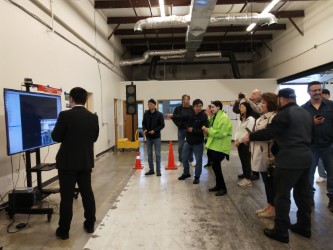
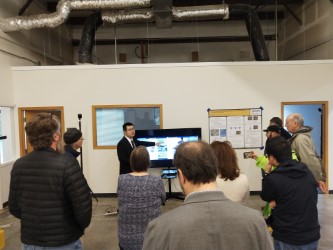
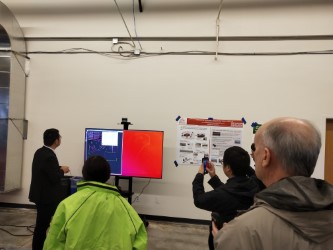
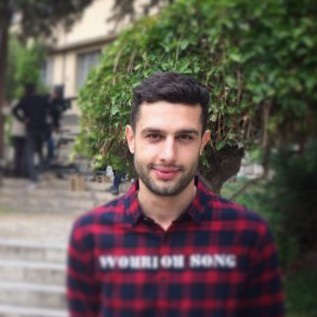
IPIT Ph.D. student Mohammad Abrari Vahari has been awarded the UWM Distinguished Graduate Student Fellowship for the 2023-2024 academic year, reflecting his exceptional academic performance and dedication. He is one of the five graduate students in the College received this award this year.
The fellowships are offered through a highly selective process and are one-year, non-renewable awards. The Distinguished Graduate Student Fellowship provides a stipend of $15,500 in addition to full tuition coverage, low-cost health benefits, and a $1,000 travel award. The same benefits apply to the Distinguished Dissertation Graduate School Fellowships except the stipend is $17,000.
Well done and congratulations to Mohammad!

Researchers and students from the Institute for Physical Infrastructure and Transportation (IPIT) made a significant impact at the 103rd Annual Meeting of the Transportation Research Board (TRB) held in Washington, D.C., presenting seven papers that delved into various critical aspects of transportation infrastructure and safety:
1. M. W. Amer, Y. Li, Xiao Qin (2023), Unveiling Data Interconnection Gaps: Linking Overheight Vehicle Bridge Strike Data, TRB 103rd Annual Meeting, Washington, D.C.
2. Z. X. He, H. Tabatabai, Xiao Qin (2023), Evaluating the Delivery and Oversight of State-Funded Local Bridge Projects, TRB 103rd Annual Meeting, Washington, D.C.
3. Xiao Qin, M. Gottlieb, S. Solverson, M. W. Amber (2023), Lessons Learned from Pilot Design-Build Transportation Projects, TRB 103rd Annual Meeting, Washington, D.C.
4. M. A. Vajari, Y. Li, I. Aghayan, Xiao Qin, R. J. Schneider (2023), Current Practices in Non-Motorist Crowdsourced Data Among Transportation Agencies: A Nationwide Survey and Its Implications, TRB 103rd Annual Meeting, Washington, D.C.
5. Y. Li, Xiao Qin, M. A. Sayed, M. Hossain, M. W. Amer. A (2023), Systematic Review of Machine Learning Methods for Traffic Crash Modeling, TRB 103rd Annual Meeting, Washington, D.C.
6. M. W. Amer, Y. Li, Xiao Qin (2023), Developing Crash Prediction Models for Under-Bridge Strikes by Over-Height Vehicles, TRB 103rd Annual Meeting, Washington, D.C.
7. M. A. Sayed, Xiao Qin (2023), A Structure and Narrative Data Fusion–Based Machine Learning Approach to Classifying Distracted Driving Crashes, TRB 103rd Annual Meeting, Washington, D.C.

IPIT Ph.D. student Mohammad Wael Amer has been awarded a research fellowship supported by the Professor Edward A. Beimborn Fellowship Fund for the 2023-2024 academic year, recognizing his outstanding academic achievements and commitment.
The Professor Edward A. Beimborn Fellowship Fund is established by Dr. Curtis Lueck P.E. ’77, to award graduate students in the College of Engineering who are enrolled in a program leading to a graduate degree in Civil Engineering, with a concentration in urban transportation for their outstanding academic and research achievements. One award of $7,500 is given out each academic year.
Well done and congratulations to Amer!
September 13, 2023
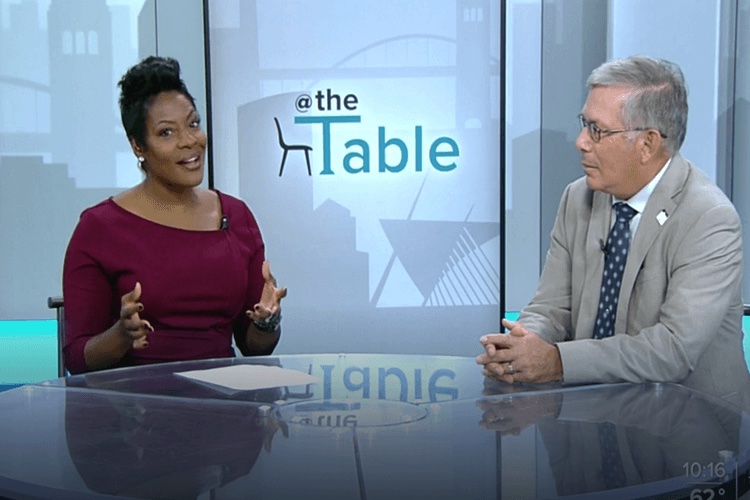
Mark Gottlieb, associate director of UWM’s Institute for Physical Infrastructure and Transportation, discussed the pros and cons of removing I-794s east-west bridges with several media outlets in September.
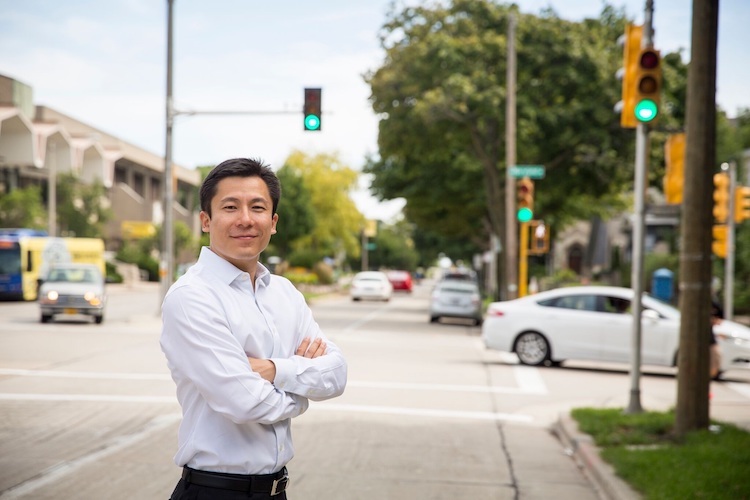
In September, Xiao Qin, UWM Institute for Physical Infrastructure and Transportation director and Lawrence E. Sivak ’71 Professor, Civil and Environmental Engineering, explained why roundabouts have increasingly become popular, their safety benefits and the history behind them in this Milwaukee Journal Sentinel feature.
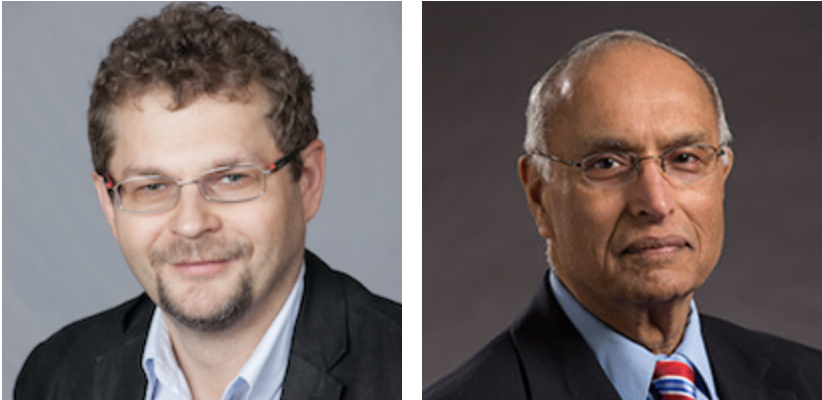
Congratulations to faculty members Konstantin Sobolev (left) and Pradeep Rohatgi (right), who received UWM Research Foundation Bridge grants that will support the commercialization of their inventions: spray-on protection for concrete and a stronger aluminum.

The nation is preparing for seismic changes in transportation and UWM secured a role at the table in February with a $1.67 million grant from the U.S. Department of Transportation to advance research and education programs that address a specific challenge: promoting pedestrian and bicycle safety.

On March 6, Mark Gottlieb, associate director of UWM’s Institute for Physical Infrastructure and Transportation, was a guest on the Wisconsin Public Radio show Central Time. He discussed the pros and cons of toll roads as a funding source.